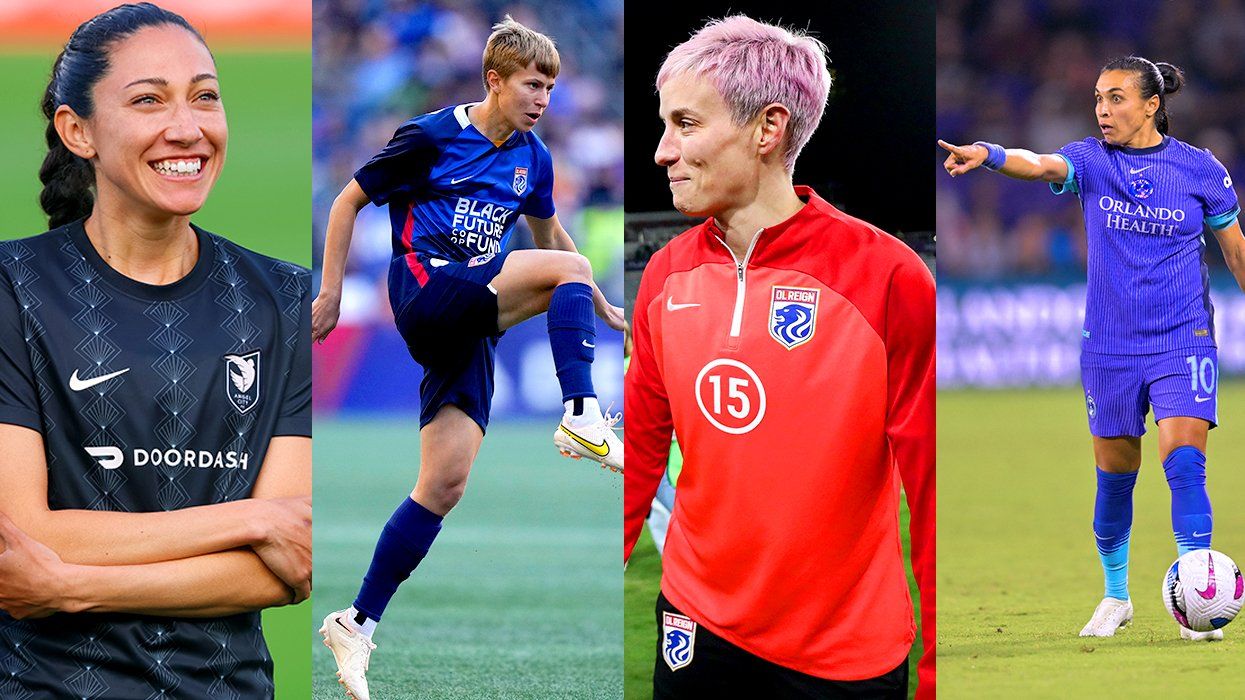It’s the worst and most severe global epidemic in modern history and the numbers are shocking: More than one in three women worldwide is a victim of physical or sexual violence.
One billion women.
Are you one of them? Have you experienced physical and/or sexual violence at the hands of a partner or someone else? Have you reported it? Have you been treated for it? Or have you, like the majority of women worldwide, tried to deal with it on your own out of fear, shame or not knowing who to call?
One billion women have experienced the same violence you have.
On June 20 the World Health Organization (WHO) released a new report in partnership with the London School of Hygiene & Tropical Medicine and the South African Medical Research Council on against women. The stunning report, which coordinated statistics and studies from every continent, found that 35 percent of women worldwide–more than a third of all women–are victims of physical or sexual violence, or both. The study included women aged 15 and up.
The study follows last month’s announcement from the Centers for Disease Control (CDC) that rape was more common than smoking among women under 30 in the U.S. and was just as great a health emergency.
This extreme amount of violence poses a global health problem of epidemic proportions, the WHO report said. Dr. Charlotte Watts, one of the authors of the study, was emphatic, "This new data shows that violence against women is extremely common. We urgently need to invest in prevention to address the underlying causes of this global women’s health problem."
Recent well-publicized and horrifying instances of sexual violence against women have drawn attention to the problem, notes Dr. Claudia Garcia-Moreno, the other author of the study, but as important as that is, she says, "These kinds of cases raise awareness, which is important, and at the same time we must remember there are hundreds of women every day who are being raped on the streets and in their homes, but that doesn’t make the headlines."
For example, the recent testimony regarding sexual assault and rape in the military has focused attention on the topic, but there are 26,000 women involved–heterosexual, bisexual and lesbian. Those women could be women we all know–but they have had to hide their experience from everyone. As do other women on a daily basis.
The WHO study focused on the prevalence of and health impact due to intimate partner violence and non-partner sexual violence. It represents the first systematic study of global data on the prevalence of violence against women by intimate partners and non-partners.
According to WHO, 30 percent of women are attacked or abused by their intimate partners. This inter-personal violence causes a wide array of health problems, including broken bones, bruises, burns, cuts, scars as well as depression and other mental illnesses, which are twice as common in women experiencing violence.
There is also what the study called "impaired social functioning." Like alcohol and drug abuse. Women being abused by a partner are twice as likely as other women to abuse alcohol and/or drugs.
And then there’s murder.
The report, written by Watts with Claudia Garcia-Moreno of WHO, stated that nearly two-fifths (38 percent) of all women murder victims were killed by intimate partners,
and 42 percent of women who have been victims of physical or sexual violence by a partner have injuries severe enough to require medical treatment as a result.
What the report showed in point-by-point detail was just how far-reaching the impact of violence against women is–citing it as a "root cause for a range of acute and chronic health problems, ranging from immediate injury to sexually transmitted infections, to HIV, to depression and stress- and alcohol-related health disorders."
Women who suffer violence from their partners are one and a half times more likely to get Chlamydia, syphilis or gonorrhea, all of which are on the rise globally, particularly among women under 35. Chlamydia is the leading cause of fertility problems in women, but has few symptoms. HIV infection is another issue for women related to sexual violence, the WHO report found.
The WHO report stressed the need for a global focus on ending tolerance for violence against women and creating better support networks for women who experience violence. New guidelines from WHO were launched with the report in an effort to help countries from Africa to the U.S. improve the response of physicians and health care systems to women who have experienced violence. WHO emphasized the need for attention on violence against women as a health care epidemic.
"These findings send a powerful message that violence against women is a global health problem of epidemic proportions," said Dr. Margaret Chan, Director General of WHO. "We also see that the world’s health systems can and must do more for women who experience violence."
Chan has been at the forefront of drawing global attention to violence against women. In March, Chan joined the U.N. Secretary General in a call for zero tolerance for violence against women at the Commission on the Status of Women in New York.
During the 66th World Health Assembly in May 2013, seven governments–Belgium, India, Mexico, Netherlands, Norway, United States and Zambia–declared violence against women and girls "a major global public health, gender equality and human rights challenge, touching every country and every part of society" and proposed the issue should appear on the agenda of the Sixty-seventh World Health Assembly.
One of the things the WHO report suggests needs to be done, which no doubt will be raised at the World Health Assembly, is better "data collection" on non-partner violence against women. Rape statistics are not kept in any kind of uniform way if at all in most countries, the report found–stigma attaches to women who are victims of sexual violence in all countries, the authors of the study found.
Even with this lack of information, WHO discovered that 7.2 percent of women globally had reported non-partner sexual violence.
As a result of this violence, women who had been sexually assaulted/raped were 2.3 times more likely to have alcohol disorders and 2.6 times more likely to suffer depression or anxiety–slightly more than women experiencing intimate partner violence.
Garcia-Moreno said the study points to some of the key issues for women, most importantly, getting help.
"The report findings show that violence greatly increases women’s vulnerability to a range of short- and long-term health problems," Garcia-Moreno said. "It highlights the need for the health sector to take violence against women more seriously. In many cases this is because health workers simply do not know how to respond."
Or because women who have experienced the violence can’t explain or fear explaining. Women often seek health care, but without disclosing the cause of their injuries or illness, when it is actually violence-related. The study found that while violence is somewhat more prevalent in some countries, notably in Africa and Southeast Asia, the U.S. still ranked exactly on par with the overall numbers.
A recent memoir, Beautiful Wreck, by lesbian journalist Stephanie Schroeder, detailed her experience with interpersonal violence at the hands of lesbian lovers. This is not just an issue for heterosexual women. In fact, as Schroeder’s raw and compelling memoir suggests, it’s even more difficult for lesbians to speak out about their experiences with violence.
The front-page news story about celebrity chef Nigella Lawson being attacked outside an upscale restaurant by her husband Charles Saatchi shocked many–including Watts. "We don’t know the details of what is going there, but it does illustrate this happens to all women–it’s not just poor women, or women in a certain country. This really is a global issue," Watts said.
Yet the incident with Lawson and her husband points out just how ignored violence against women is. While people snapped cell-phone photos of the assault, no one tried to stop it. The photos ended up on the front page of several newspapers. Yet Saatchi’s response seemed to minimize the event.
In a statement to The Evening Standard newspaper, for which he is a columnist, Saatchi said: "Although Nigella made no complaint I volunteered to go to Charing Cross station and take a police caution after a discussion with my lawyer because I thought it was better than the alternative of this hanging over all of us for months."
As the WHO study makes clear, most women don’t report. And Lawson’s photo with her husband’s hand wrapped around her throat in what he termed at the time "an effort to get her to listen" was evidence of some level of violence, certainly.
WHO recommends a series of steps by health care providers to make it easier for women to get help, notably being seen in a private setting where they can be open with the health care provider about what has happened to them, seek help, including protection from the abuser as well as testing for STDs and other treatment.
One billion women is a staggering number. If you are one of that number, there are services available to help you. Don’t be afraid, don’t be ashamed: One billion women share your pain. And one billion women need help, too, which is why WHO has made it their priority.
National Domestic Violence Hotline at 1-800-799-SAFE (7233)
National Sexual Assault Hotline at 1-800-656-HOPE (4673)
If you need to find out more about resources and options before you feel comfortable enough to pick up a phone RAINN – the Rape, Abuse & Incest National Network
@VABVOX
Victoria A. Brownworth is an award-winning journalist, editor and writer. She has won the NLGJA and the Society of Professional Journalists awards, as well as the Lambda Literary Award and has been nominated for the Pulitzer Prize.She has written extensively on violence against women and rape for SheWired, the Advocate and other publications.























































































 Cindy Ord/Getty Images
Cindy Ord/Getty Images

























